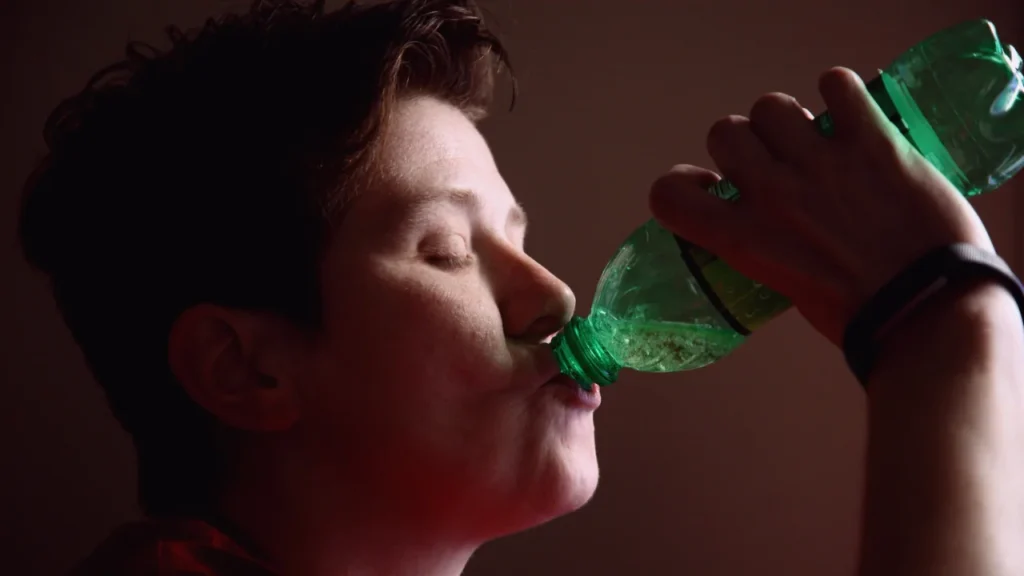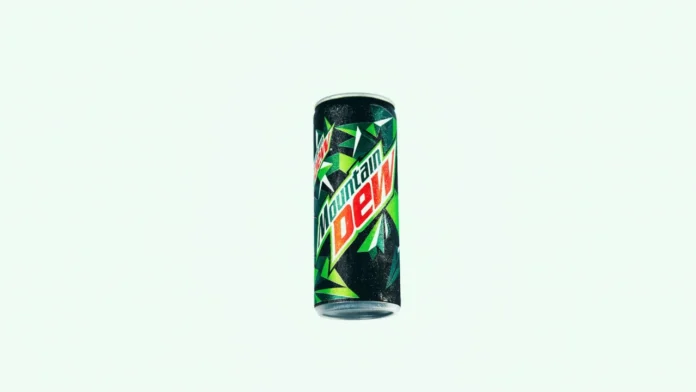Mountain Dew, a popular soft drink, has been facing supply shortages in recent months. This has left many consumers wondering about the reasons behind this issue. The Mountain Dew shortage is due to a number of factors, including Increased demand for the product, supply chain disruptions, & production issues. This article aims to explore the current shortage of Mountain Dew, its impact on retailers and consumers, the factors contributing to the shortage, and potential alternatives for Mountain Dew lovers.
What is Mountain Dew?
Mountain Dew is a delicious, fizzy drink made by PepsiCo. It was first created in 1940 by Tennessee beverage bottlers Barney and Ally Hartman and originally marketed as a mixer for whiskey. The drink was later renamed Mountain Dew and became a popular soft drink in its own right.
Mountain Dew is a citrusy, highly caffeinated soda that’s loved by many. It comes in a variety of flavors, including the classic Mountain Dew, diet Mountain Dew, Mountain Dew Zero, and Mountain Dew Code Red. Mountain Dew is a hit with both soda and energy drink lovers.
Is There A Mountain Dew Shortage?
Yes, there has been a Mountain Dew shortage in the market. This scarcity has impacted the availability of popular Mountain Dew products, including diet Mountain Dew, due to various factors affecting the beverage industry.

Why Is There A Mountain Dew Shortage?
In the year 2023, the Mountain Dew shortage can be attributed to various factors. Among these, there are certain prominent reasons that stand out.
Supply Chain Disruptions
The pandemic has disrupted the global supply chain, making it difficult to source raw materials and ingredients for Mountain Dew, such as aluminum cans, sugar, and citric acid. This has led to challenges in manufacturing the soft drink.
Aluminum Can Shortages
Aluminum cans are in high demand across the board, which has led to a global shortage. This shortage has hit Mountain Dew particularly hard, making it tough to keep up with demand.
Increased Demand
Mountain Dew has been blowing up in recent years, with more and more people choosing the caffeinated beverage over other soft drinks. This increased demand has put a lot of pressure on the supply chain, making it hard to keep up with the growing popularity.
Production Limitations
Mountain Dew factories have been struggling to keep up with demand. They’ve been working as hard as they can, but their factories just aren’t big enough or efficient enough to make enough Mountain Dew to satisfy everyone who wants it.
Labor Shortages
The ongoing pandemic has had a significant impact on labor shortages across different sectors, and the manufacturing industry is no exception. This unfortunate situation has directly affected the production of Mountain Dew, as the availability of skilled workers at production facilities and distribution centers has been severely limited.
Transportation Issues
Mountain Dew is having a hard time getting its products to stores because of transportation delays and disruptions. This means that there are shortages of Mountain Dew in some areas, and it can be hard to find the drink consistently.
Inventory Management Challenges
Retailers and distributors have been having a hard time keeping Mountain Dew in stock due to supply chain issues and fluctuating demand. It’s been tough to know how much to order and when, so some stores have been running out of stock.
PepsiCo, the company that owns Mountain Dew, is working hard to fix these problems and make sure their products are more available. They’re investing in expanding their production, streamlining their supply chain, and dealing with labor shortages. They’re also working closely with retailers to make sure they have the right amount of inventory and are distributing it in the best way possible.
Why Mountain Dew Is So Popular?
Mountain Dew’s popularity stems from its unique flavor profile, high caffeine content, and fan base that enjoys the beverage as a refreshing and energizing drink. The demand for Mountain Dew has increased over the years, contributing to its widespread popularity.
The drink was created in 1940 by Tennessee beverage bottlers Barney and Ally Hartman, and originally marketed as a mixer for whiskey. It was later renamed Mountain Dew and marketed as a soft drink. The drink’s unique flavor is due to a blend of citrus fruits, including lemon, lime, and orange. Mountain Dew also contains caffeine, which gives it a stimulating effect.
How Is Shortage Impacting Retailers & Consumers?
The shortage of Mountain Dew has had a significant impact on both retailers and consumers. Retailers have had to deal with limited availability of the product, which has led to frustrated customers and lost sales. Consumers have also been affected, as they have had to either go without their favorite beverage or pay higher prices for it. The shortage has also led to some consumers exploring alternative options, such as other soft drinks or even home-brewed Mountain Dew.
What Are the Future Expectations for Mountain Dew Supply?
The future of Mountain Dew is up in the air as the beverage industry struggles with supply chain issues and production constraints. While they’re working on fixing the shortage, it’s unclear when there will be enough to meet demand. They’re taking steps to increase production, like investing in new manufacturing plants and expanding existing ones.
They’re also working to improve supply chain management practices. These efforts should help to ease the shortage in the coming years.
What Are The Alternatives For Mountain Dew?
Consumers who are unable to find Mountain Dew can explore alternative options such as other soft drinks, energy drinks, or beverages with similar flavor profiles. Some may opt for different soda or carbonated drinks available in plastic bottles to fulfill their beverage preferences. For example, they could try Sprite, 7-Up, or Sierra Mist, which are all citrus-flavored soft drinks.
They could also try an energy drink like Red Bull or Monster, which are both carbonated and have a sweet taste. Additionally, there are many other beverages on the market that have similar flavor profiles to Mountain Dew, such as Arizona Iced Tea’s Mountain Dew flavor and Sunkist’s Citrus Burst flavor. Ultimately, the best alternative for someone who can’t find Mountain Dew will depend on their individual preferences.
Conclusion
The current Mountain Dew shortage is a complex issue with no easy solution. However, PepsiCo is working hard to address the issue and restore Mountain Dew to its rightful place on store shelves. In the meantime, consumers may consider exploring alternative options to fulfill their beverage preferences. There are many great tasting and refreshing beverages available, so there is sure to be something to please everyone.
Related:
- Seagrams Ginger Ale Shortage
- Almond Milk Shortage
- Powdered Sugar Shortage
- Meow Mix Shortage
- Heavy Cream Shortage
- Hash Brown Patty Shortage
- TGEL Shortage
- Kosher Salt Shortage
- Sprite Zero Shortage
- Banana Shortage
- Friskies Cat Food Shortage
- Ruby Red Squirt Soda Shortage
- Hungry Jack Potatoes Shortage
- Bang Energy Drink Shortage



